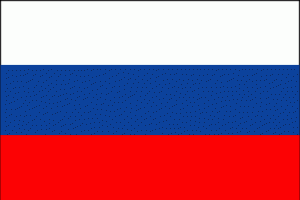 Linar Khalitov, Wikimedia Russia, Link (CC-BY)
Linar Khalitov, Wikimedia Russia, Link (CC-BY)
On March 12, 2014, the Federal Law that introduced changes to the prime source of Russian civil law, the Civil Code, was signed. This sign-off brought to life many amendments that Russian members of Wikipedia have been eager to see for a long time.
The main changes relevant to Wikimedia projects are listed below:
- introduction of free licenses: before license agreements were only in the form of a written agreement; now CC-BY-SA-3.0, which is used by Wikipedia, has a legal basis and Wikipedia editors can defend their own author rights;
- freedom of panorama: now photos of architectural and urban development objects and objects of garden design in public places can be published under free licenses without consent of architect or designer;
- now an author can revoke publication of own materials only before such publication actually occurred;
- libraries now have right to create electronic copies of certain types of works.
These changes are a result of a lot of hard work on behalf of Wikimedia-RU, the local chapter of Wikimedia movement in Russia – proposing, discussing and defending amendments to the Code.
Wikimedia-RU officially started work on changes to the Civil Code in 2009 when the first open letter to the State Duma was published.
In 2010, we sent a detailed list of our proposals to the Codifications Council. The list was a result of real wiki-corroboration: editors published their comments and proposals on the village pump and all ideas were brought together by WM-RU. Afterwards, the list was published on a number of popular websites where it gathered feedback from external users who helped evaluate possible drawbacks of proposals and suggested some additional changes. The Final list of proposals became “a light at the end of the tunnel” for WM-RU.
Changes to the Civil Code went through hundreds of discussions in the State Duma, expert committees, TV programs; WM-ru members even participated in the meeting with Dmitry Medvedev. The proposed liberalization of the law drew heavy critics from the Russian Authors’ Society, media companies and book publishers. The critics tried to minimize effect from innovations, for example, by obligatory state registration of all publications under free licenses: that could result in necessity of state registration of every Wikipedia edit in order to get it officially protected by CC-BY-SA.
Fortunately, proposed changes were mostly approved by the State Duma in February 2014, by the Council of Russian Federation in March 2014, and signed by the President.
What will it give to Wikimedia projects? Starting on 1 October 2014 we will be able to:
- start review of images, deleted on Commons due to prior absence of freedom of panorama: there were hundreds of such deletion reviews and hundreds were speedily deleted without discussion;
- transfer thousands of local free images that were restricted from uploading to Commons due to freedom of panorama;
- conduct contests like “Wiki loves monuments” without threat that all uploaded images will be deleted due to FoP issues;
- explain the meaning of the free licenses to the authorities based on the existing legislature and promote free information and open data.
We would like to thank all the people and organizations that helped us during this difficult time. We are looking forward to continuing such work in the future.
Linar Khalitov, Wikimedia Russia




